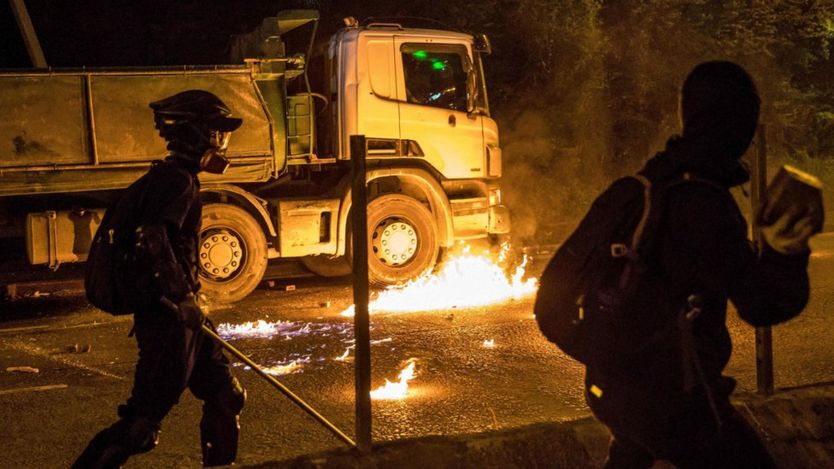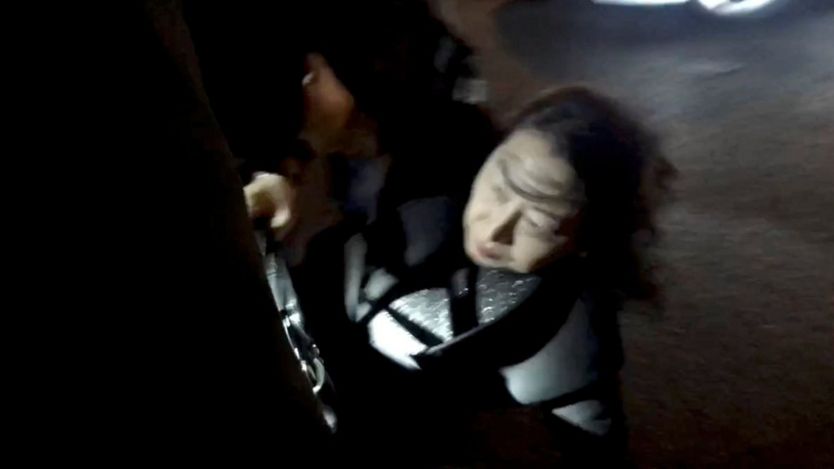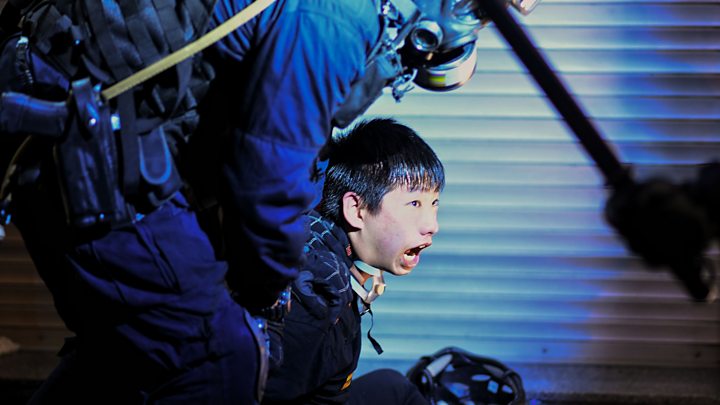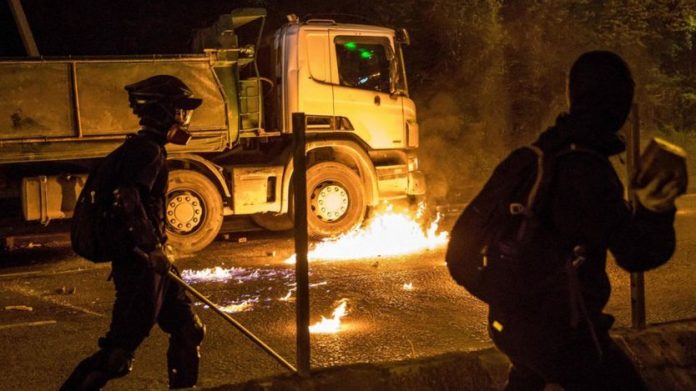|
Getting your Trinity Audio player ready...
|
A man has died in Hong Kong after being hit on the head during clashes between government supporters and protesters.
The government said the 70-year-old cleaner was on a lunch break on Wednesday when he was struck by “hard objects hurled by masked rioters”.
Meanwhile, China’s president Xi Jinping said Hong Kong’s use of “one country, two systems” was being “challenged”.
And in London, Justice Secretary Teresa Cheng was hurt after being jostled by protesters, the Chinese embassy said.
China strongly condemned the incident and called for a thorough investigation.
What happened to the man?
The 70-year-old was hit in the head during a protest in the Hong Kong border town of Sheung Shui.
Video purported to be of the incident shows two groups throwing bricks at each other before the man falls to the ground after being struck on the head.
A police superintendent told news outlet SCMP that the cleaner was not involved, and was “only taking pictures at the scene”. He died in hospital on Thursday.
The Food and Environmental Hygiene Department (FEHD) said the man was an outsourced worker of theirs who had been on his lunch break.
The FEHD also condemned the protesters, calling them “extremely dangerous”.
“[They] conducted violent acts in various districts three days in a row, where they wantonly assaulted other members of the public,” the statement added. “The acts are outrageous.”
Hong Kong has seen an escalation in violence this week, with intense street battles, violent clashes at universities, and flashmob lunchtime protests.
On Monday, a police officer shot an activist in the torso with a live bullet, and a man was set on fire while arguing with anti-government protesters.
A week ago, Alex Chow, a 22-year-old student, died after falling from a building during a police operation.

What happened to Teresa Cheng?
Ms Cheng was in London to promote Hong Kong as a dispute resolution and deal-making hub.
Video showed her walking towards a lecture at the Chartered Institute of Arbitrators when she was surrounded by a group of protesters.
Some held signs and shouted “murderer” and in the melee, Ms Cheng fell to the ground.

She regained her feet and was escorted away with no visible signs of injury, AFP reported.
A statement from the Chinese embassy in the UK said Ms Cheng had been pushed to the ground and sustained a hand injury.
It said the incident showed “violent and lawless perpetrators” were now taking their violence abroad.
London’s Metropolitan Police told the BBC they were investigating an allegation of assault and no arrests had been made.
“A woman was taken to hospital by London Ambulance Service suffering an injury to her arm. Enquiries are ongoing to establish the full circumstances,” a statement said.
Hong Kong Chief Executive Carrie Lam also condemned the protesters, saying “the savage act breached the bottom line of any civilised society”.
What did President Xi say?
President Xi, who was speaking at a summit of BRICS countries in the Brazilian capital Brasilia, issued a strong warning to protesters in Hong Kong.
He said that “radical violent activities” in the city had “seriously challenged the [principle of] ‘one country, two systems'”.
According to state media outlet the Global Times, Mr Xi said the “most pressing task for Hong Kong is to end violence and chaos and restore order”.
He also threw his “firm support” towards the Hong Kong police force..
Why are there protests in Hong Kong?
Hong Kong – a British colony until 1997 – is part of China under a model known as “one country, two systems”.
Under this model, Hong Kong has a high degree of autonomy and people have freedoms unseen in mainland China.
The protests started in June after the government planned to pass a bill that would allow suspects to be extradited to mainland China.
Many feared this bill would undermine the city’s freedoms and judicial independence.
The bill was eventually withdrawn but the protests continued, having evolved into a broader revolt against the police, and the way Hong Kong is administered by Beijing.
Protests have taken place every weekend over the past few months, causing widespread disruption.

Source: BBC News





